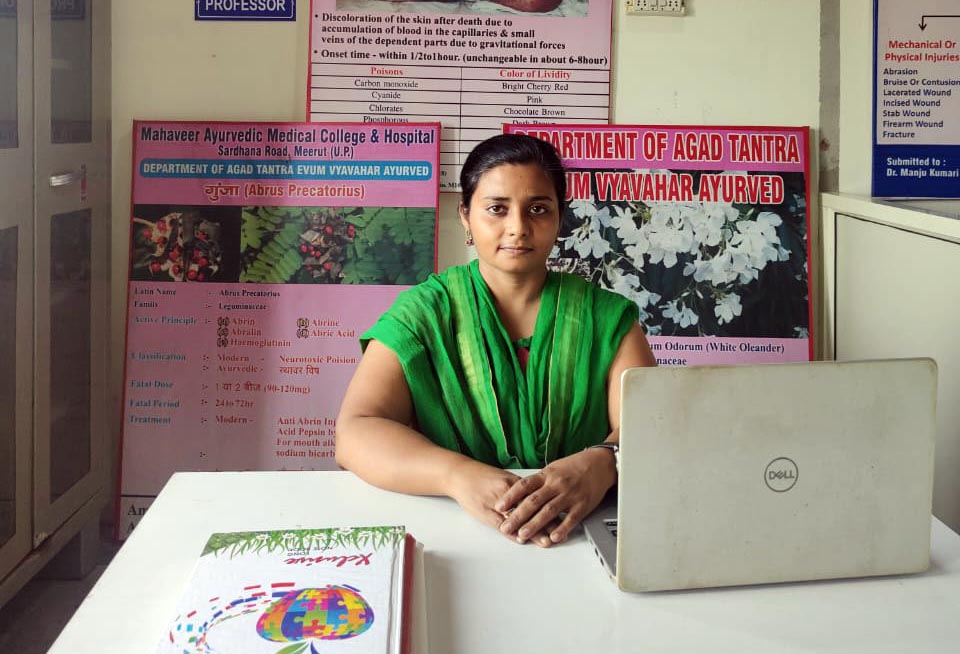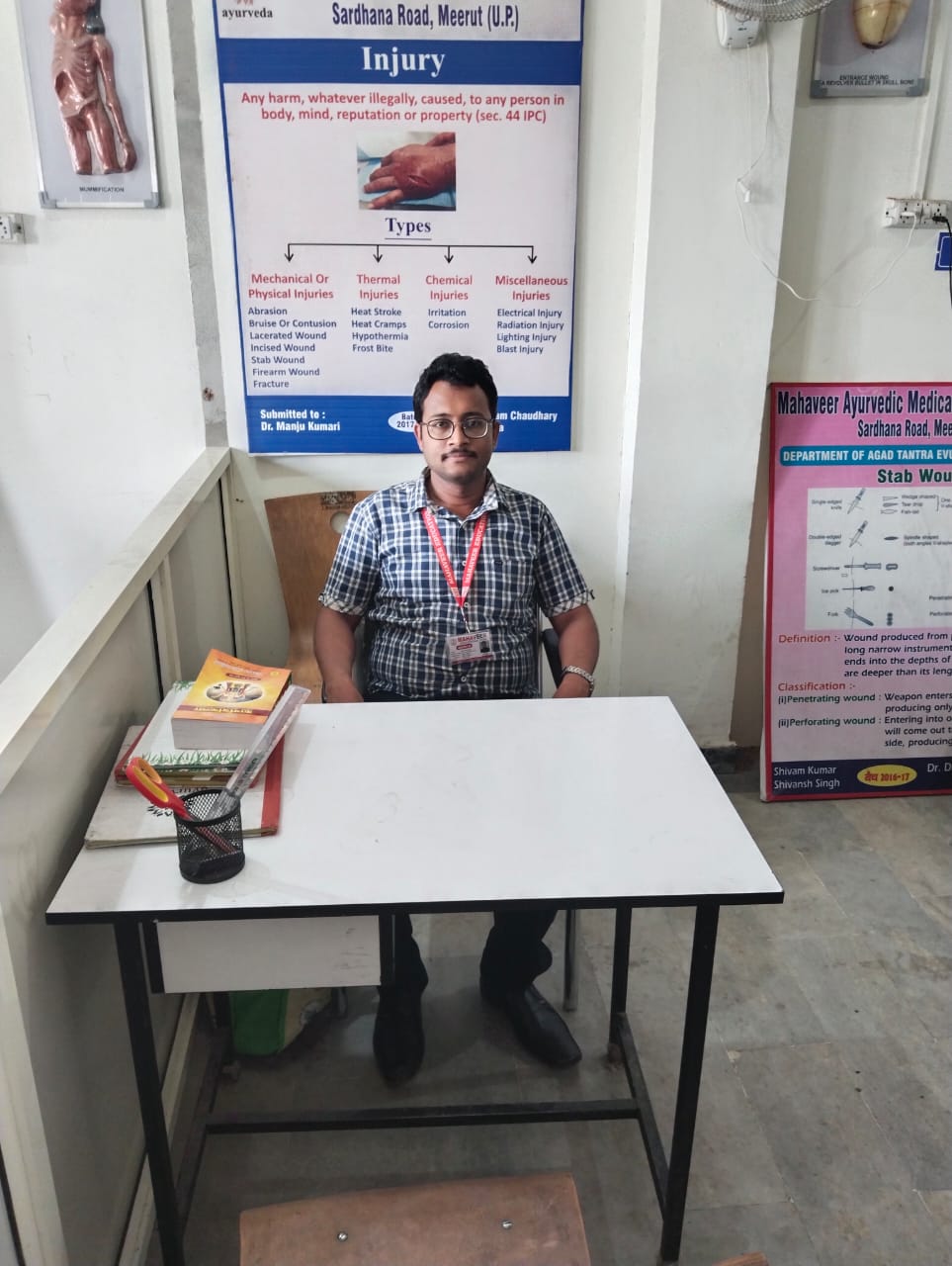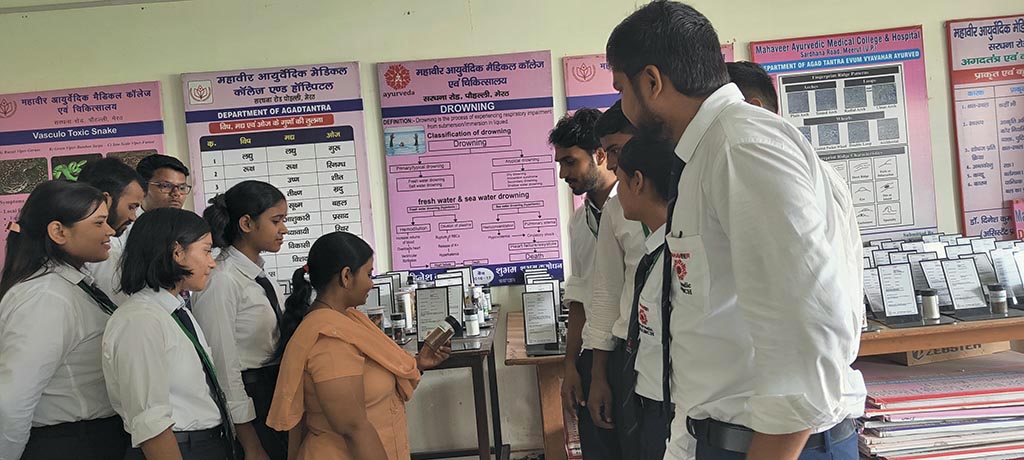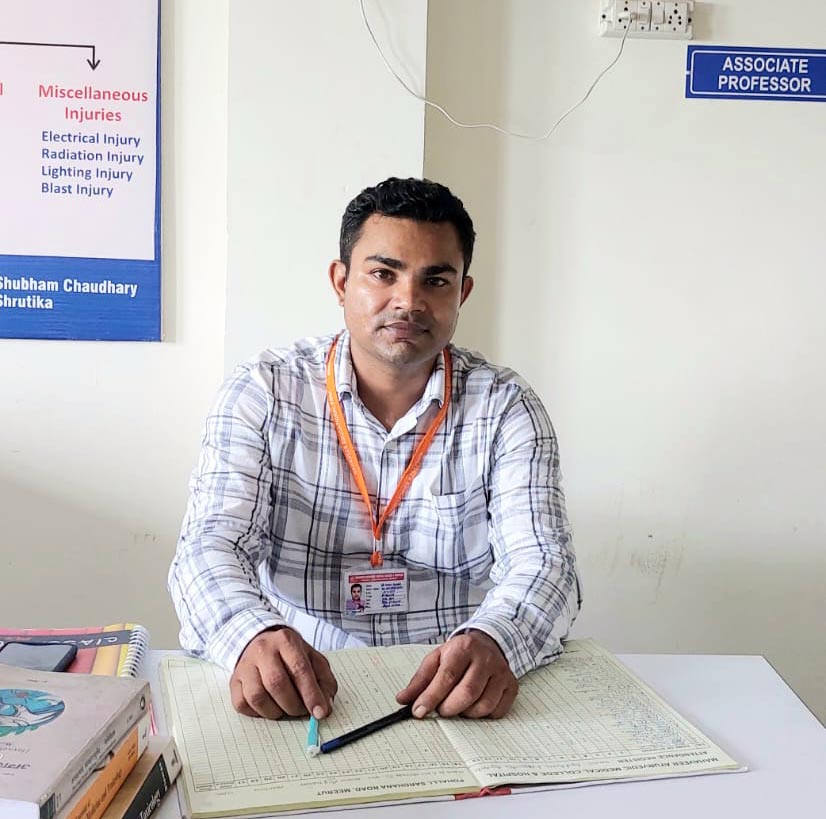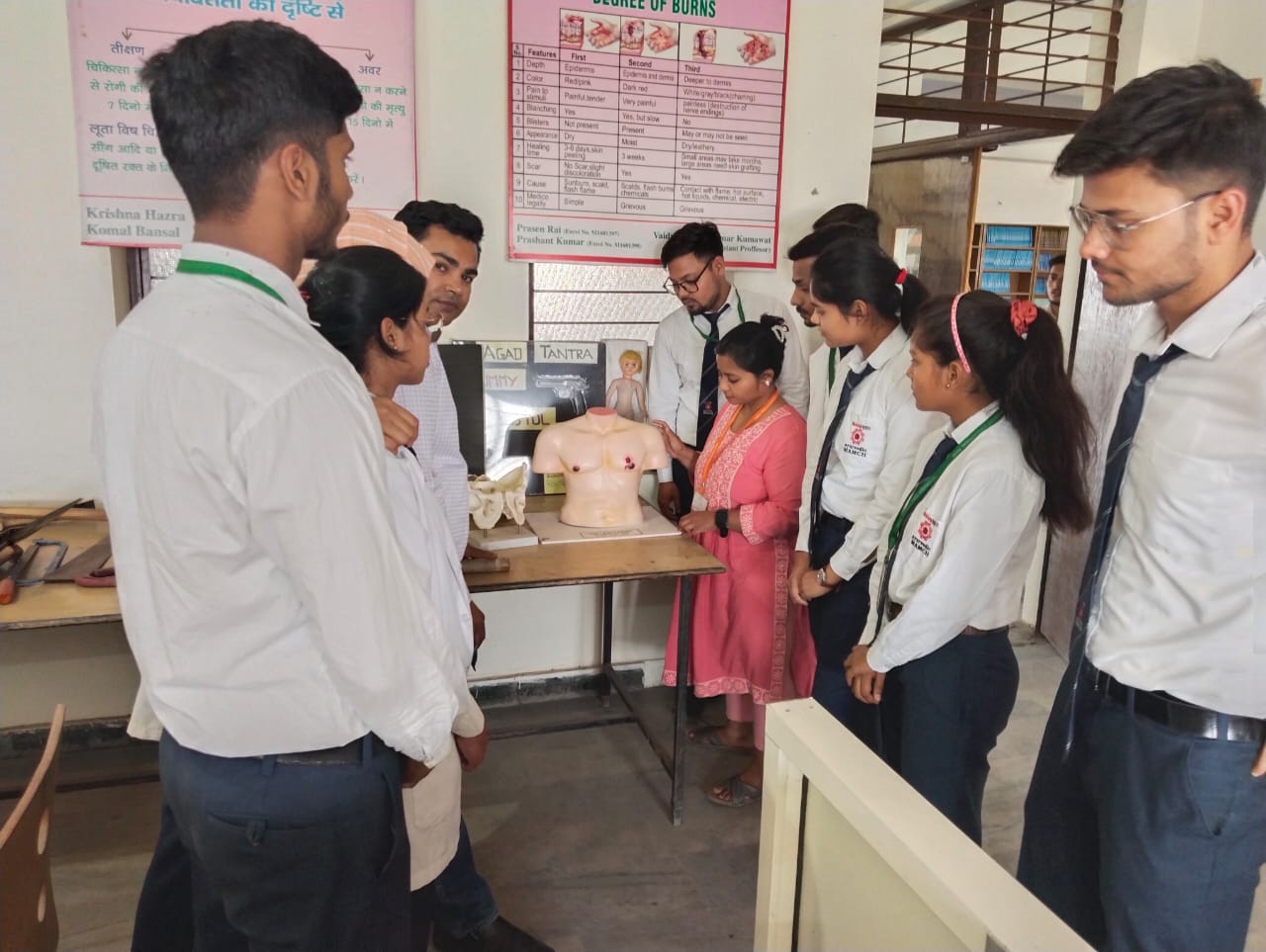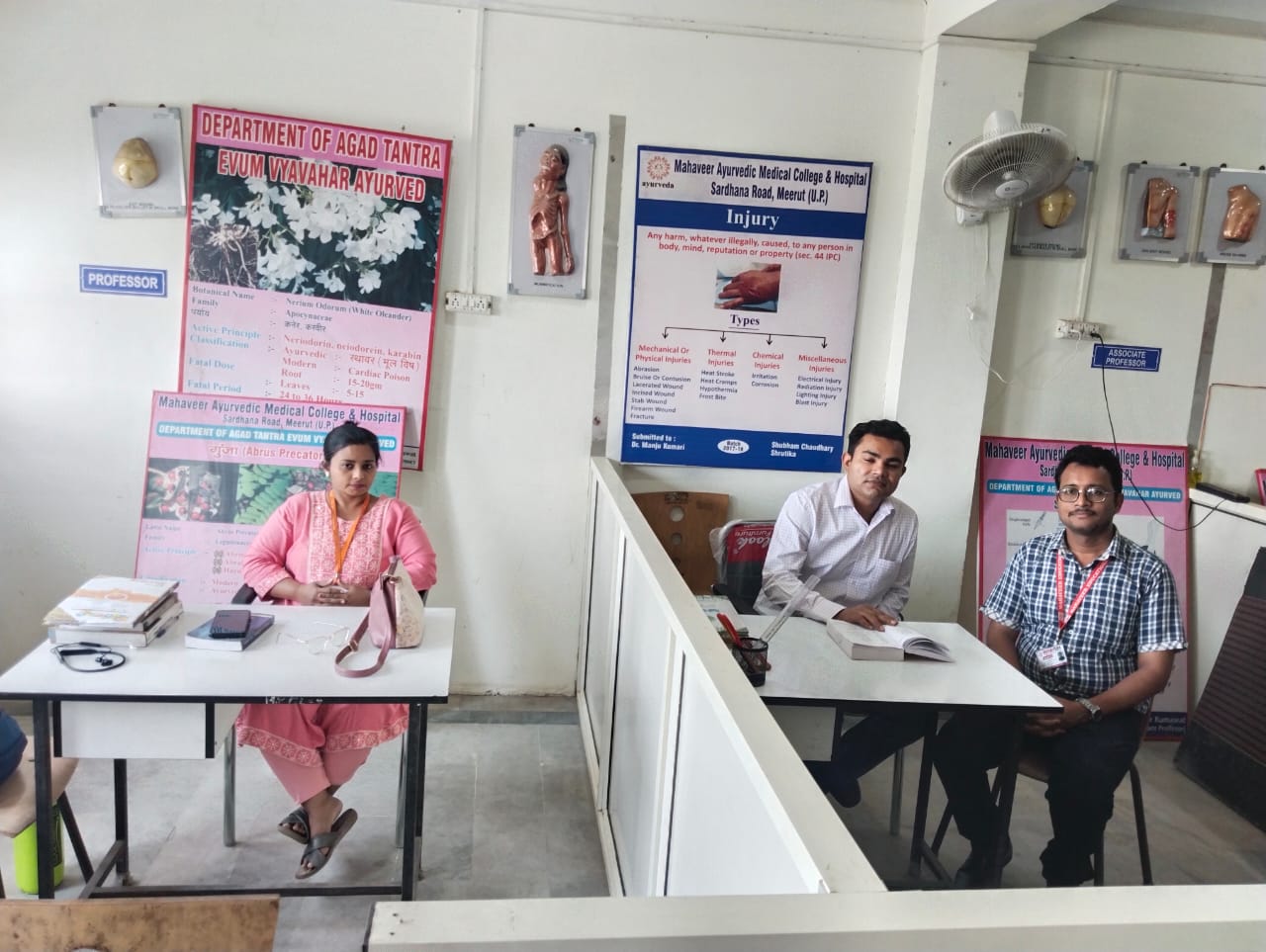Agad tantra deals with study of poisons, its action, clinical manifestation and diagnosis of acute, chronic and cumulative toxicity and treatment. The department imparts under graduate education and training to students in Ayurvedic classical references of visha, its detailed description, classifications and examinations, diseases caused by it, principles of management. Vyavhar Ayurveda comprises application of medical knowledge for administration of law, Medicolegal aspect and ethical of medical practice and other laws related to Medical Profession.
Vision: To ensure high standard of training concerned with medical, legal and ethical issues, as well as patients and doctor’s rights.
Objective:
1. Our objective is not only to provide academic knowledge but also to exceed our stakeholder’s expectations i.e. our authorities, students, patients and law enforcement agencies.
2. To impart quality education to under graduate students meeting the highest of standards in vogue.
3. To give sufficient knowledge to handle the case of poisoning.
Achievements:
1. To provide teaching facilities to the students by which they can understand classical and contemporary areas relevant to AGAD Tantra in a better way.
2. Students are taught practical aspects of Ayurveda and contemporary medical science according to the syllabus.
3. Various workshops and seminars are organized for the overall development of the student.
4. Improved poisons database of the department is maintained.
Departmental Information
1. The department has academic section and museum.
2.The department is well equipped with teaching/learning resources.
3. In our department 01 Professor, 01 Associate Professor, 01 assistant professor and other supporting technical and non-teaching staff is sworking in the department.
Future Goals
- To crate Ayurvedic physician with ample knowledge of Vish Vigyan.
- To create physician who is aware of forensic medicine, medical ethics, duties and various Acts that govern medical practice.
- To produce a doctor well informed about medico-legal responsibilities during the practice of medicine.
Stock in department
1. COMPUTER: – 1
2. DEPARTMENTAL LIBRARY BOOKS: – 71
3. NUMBER OF CHARTS: – 77
4. NUMBER OF MODELS: – 43
5. NUMBER OF SPECIMEN: – 112
6. THEORY CLASSES: – 195
7. PRACTICAL CLASSES: – 101

